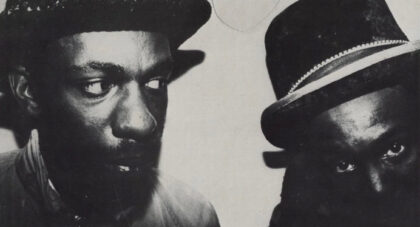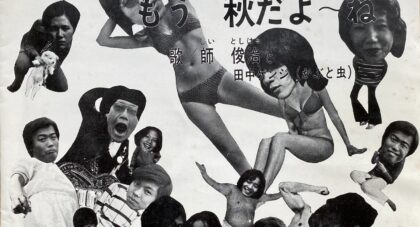On her self-titled debut, English electronic producer Kelly Lee Owens carefully weaves lyrical threads through her avant-pop club songs. Owens came from an indie rock background, but years working in record stores opened her up to the sounds of drum and bass, Krautrock, minimalism, and dream pop, all of which factor into the palette of her enveloping new album. On the record, Owens' vocals hover over shuffling beats and spacey washes of synth, alternately sounding rapturous and spooky. Her rhythms are insistent, often blooming into hard grooves, and while the songs cross-skip across genre, they're held together by Owens' songwriter instincts and an abiding electronic warmth.
“I kind of gravitate to bass quite a lot, this underwater, immersive kind of hug that it gives you,” Owens says from her management's offices in Camden.
If her time working in record shops informed her musical ideology, it was her time working as an auxiliary nurse in a cancer treatment hospital that suggested a holistic aim for her songs. With her recordings, Owens hopes to offer "immersive, sound healing," the kind of music that serves the needs of the contemplative as well as those looking to escape on the dance floor.
Aquarium Drunkard spoke with Owens about building her sound from the ground up, matters of femininity and masculinity, and, with the help of a psychic, we explored the role musical innovator Arthur Russell has played in her career. This interview has been edited and condensed.
Aquarium Drunkard: You worked in a hospital specializing in cancer treatment. Did the notion of creating music with therapeutic properties kind of take root there?
Kelly Lee Owens: It’s funny, I thought my work as a nurse was a completely separate thing from my music, but it isn’t and realizing that while discussing the album has been nice. Working in the hospital, it was all drug-based therapies, which are necessary for the most part. But I really felt like something was missing. There wasn’t a focus on the whole spectrum of well-being. I feel like creativity and music is so healing, it’s part of that, and I wondered how I could bring those two worlds together. I didn’t think it was possible, but the more I’ve looked into the science of sound, the more I realized they’re shattering cancer cells with resonant frequencies. At that time, I was going to a lot of gong sound baths. It was an experience of letting the music wash over you. You let go, ultimately, of control. I’m used to controlling sounds in a certain way. It was a new experience for me to just kind of let it be. It was quite a profound thing. I think [album closer] “8” brought that out in my own music, just letting something be and expand. It's all connecting slowly, I think.
Only the good shit. Aquarium Drunkard is powered by its patrons. Keep the servers humming and help us continue doing it by pledging your support.
To continue reading, become a member or log in.


